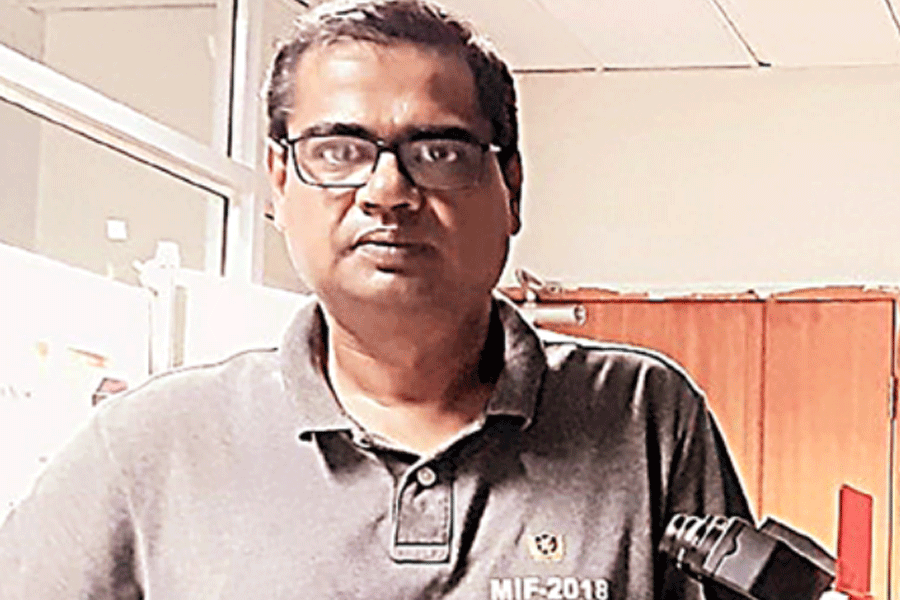A Calcutta researcher, who unravelled the mechanisms through which a mutinous human immune system might underlie seemingly unconnected health disorders, is among 12 scientists named as the winners of the Shanti Swarup Bhatnagar Prizes for 2022.
Dipyaman Ganguly, a doctor-turned-immunologist at the Indian Institute of Chemical Biology (IICB), Calcutta, has bagged the Bhatnagar prize — the most prestigious among government science awards — for medical science research, a central science department announced on Monday.
The prize-winners list released by the Council of Scientific and Industrial Research (CSIR) comes after an unexplained delay of nearly a year in the announcement always made on September 26 — the CSIR’s foundation day. The CSIR had announced the Bhatnagar winners for 2021 nearly two years ago.
The delay that followed a central government order to science departments last year to discontinue dozens of their awards and establish “high-stature” prizes, including a Nobel prize-like Vigyan Ratna, had given rise to speculation about the fate of the Bhatnagar prizes.
The government had asked the CSIR to continue with the Bhatnagar prize given to scientists aged below 45 years for research contributions in eight disciplines — biological sciences, chemistry, earth sciences, engineering sciences, mathematics, medical sciences, and physical sciences. Each prize comes with a citation and Rs 5 lakh.
All the 12 winners for 2022 are men just as they were for 2021. The 2020 winners had included two women scientists.
Ganguly, a principal scientist at the IICB, has received the prize for his work leading to new insights into how components of the human immune system called dendritic cells might explain connections between what appear to be unconnected health disorders.
“We’ve been working on certain auto-immune disorders,” Ganguly told The Telegraph on Monday, after the CSIR’s prize announcement. Autoimmunity is a condition in which cells that make up the human immune system attack the body itself.
Ganguly and his colleagues have studied a class of immune system cells called dendritic cells that play a role in certain auto-immune disorders. Their work helps explain why patients with psoriasis often also have diabetes, or why patients with rheumatoid arthritis have cardiovascular disorders. Insights into mechanisms underlying such connections, he said, could help in the design of new molecules that could be evaluated for treatment.
The other Bhatnagar prize winners for 2022 are:
Ashwani Kumar at the Institute of Microbial Technology, Chandigarh, and Maddika Subba Reddy at the Centre for DNA Fingerprinting, Hyderabad, for biological sciences
Akkattu T Biju at the Indian Institute of Science, Bangalore, and Debabrata Maiti at the Indian Institute of Technology, Bombay, for chemical sciences
Vimal Mishra at IIT, Gandhinagar, for earth sciences
Dipti Ranjan Sahoo at IIT Delhi and Rajnish Kumar at IIT Madras for engineering sciences
Apoorva Khare at the IISc and Neeraj Kayal at the Microsoft Research Lab, India, for mathematical sciences
Anindya Das at the IISc, and Basudeb Dasgupta at the Tata Institute of Fundamental Research, Mumbai, for physical sciences
The Bhatnagar prizes are named after S.S. Bhatnagar, who was the CSIR’s first director general from 1942 to 1954.











